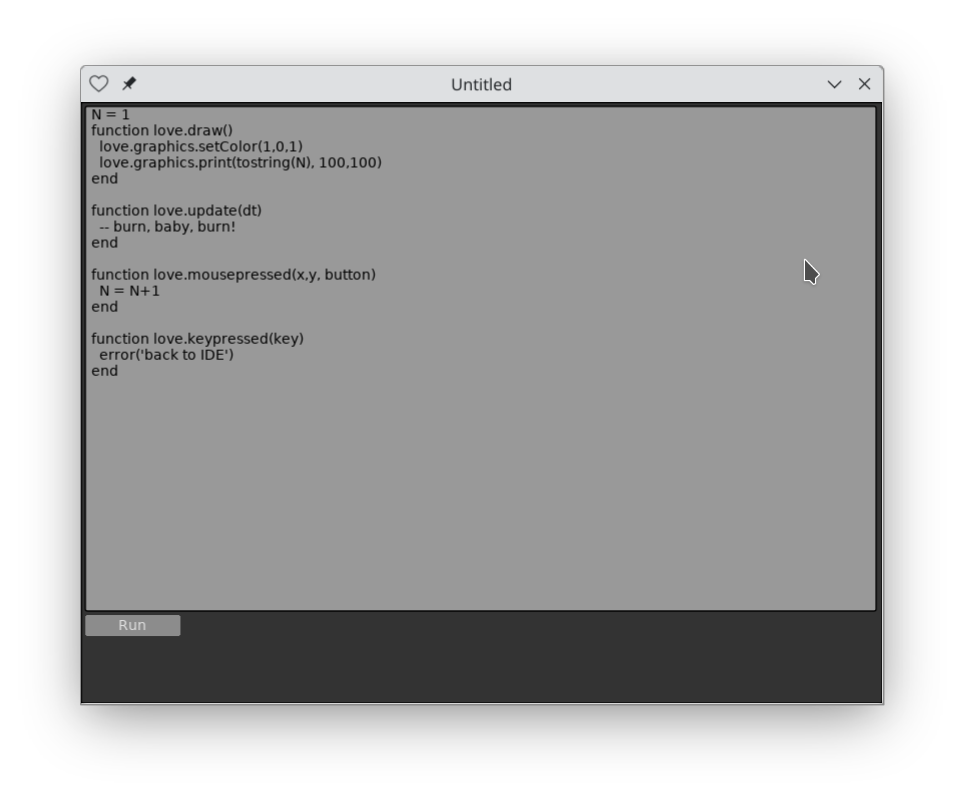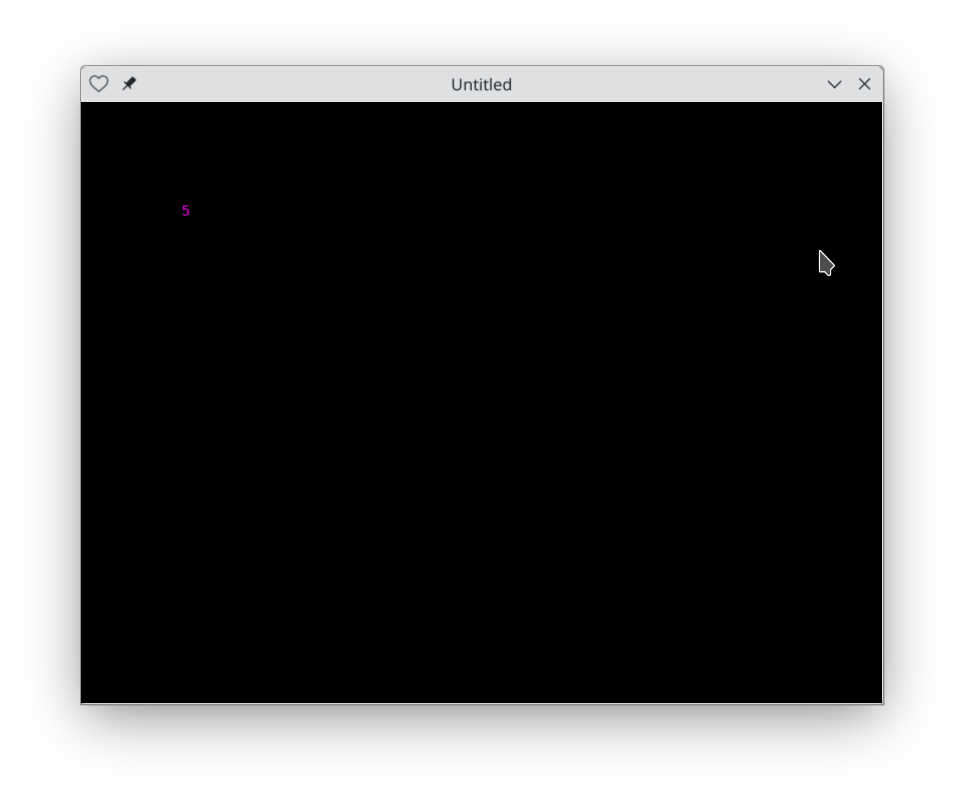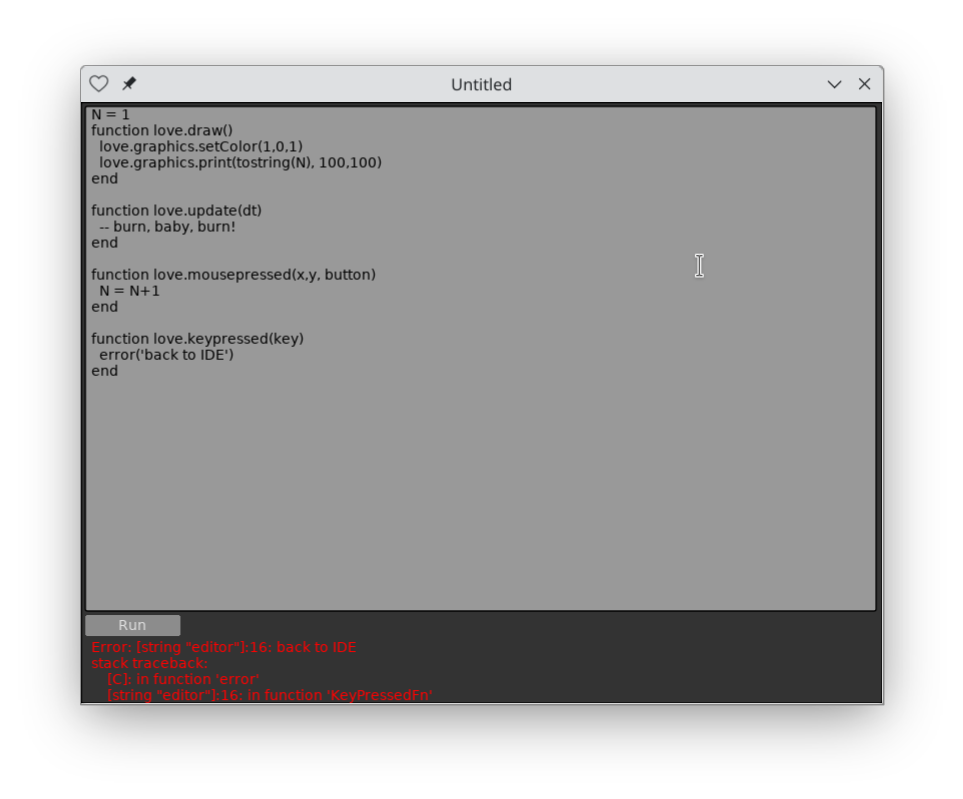🎙 FoC #66 Bonnie Nardi • A Small Matter of Programming 🫰 LÖVE your apps 🤔 No one actually wants simplicity
Our Work
🫰 Adding malleability to any LÖVE app via Kartik Agaram
You can now make any app end-user-programmable -- as long as it's built in LÖVE





[x] Change Month and Week Number
[x] focWeekExport "2023-01-19" "2023-01-26"
[x] Update Search Index
[x] Download New Attachments
[x] Update links
[x] Check that comment links work (push weekly dump with channel summaries)
[x] Check to mention right person for moved messages
[x] Summary
[ ] Hashtags
[ ] Set title in newsletter
https://tinyletter.com/
https://tinyletter.com/marianoguerra/letters/
http://localhost:8000/history/
https://marianoguerra.github.io/future-of-coding-weekly/
https://stackedit.io/app#